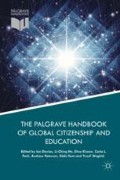Abstract
In the past few weeks, a number of schools in post-apartheid South Africa have been plunged into disarray, as students have resorted to various forms of protest against the institutional regulation and purging of ‘black hair’ and ‘black languages’. While afro hairstyles of black girls are seemingly in discord with the traditional look of certain historically advantaged (white) schools, black languages are relegated to noisy sound bites, incompatible with the objectives of learning. As one side ferments frustration against experiences of marginalisation, humiliation, and non-acceptance, the other side appeases through assimilatory words of conformity, uniformity, and compliance. As one side attempts to (re)claim their dignity and recognition, the other side turns to the pre-existence of certain ways of being, acting, and speaking. So, which view and identity hold the greater value, and does the greater value of one identity render the identities of others deficient? Seemingly, these are the types of concerns which global citizenship education seek to address. In this regard, this chapter has two primary concerns. The first considers whether postcolonial societies, such as post-apartheid South Africa, are really in need of a global citizenship education. The second concern centres on the extent to which global citizenship education might be reconcilable with constructions of postcolonial societies.
References
Al-Maamari, S. (2014). Education for developing a global Omani citizen: Current practices and challenges. Journal of Education and Training Studies, 2(3), 108–117.
Andreotti, V. (2010). Postcolonial and post- critical ‘global citizenship education’. In G. Elliot, C. Fourali & S. Issler (Eds.), Education and social change: Connecting local and global perspectives (pp. 233–245). London: Continuum International Publishing Group.
Burke, E. (1790). Reflections on the revolution in France, and on the proceedings in certain societies in London relative to that event. In a letter Intended to Have Been Sent to a Gentleman in Paris (1st edition.). London: J.Dodsley in Pall Mall.
Dash, M. (1974). Marvelous realism: The Way out of negritude. Caribbean Studies, 13(4), 57–70.
Davies, L. (2006). Global citizenship: Abstraction or framework for action? Educational Review, 58(1), 5–25.
De Oliveira Andreotti, V. & De Souza, L.M.T.M. (2012). ‘Introduction: (Towards) global citizenship education ‘otherwise’. In V. De Oliveira Andreotti & L.M.T.M. De Souza (Eds.), (2012) Postcolonial perspectives on global citizenship education (pp. 1–8). New York: Routledge.
Giroux, H. (1992a). Paulo Freire and the politics of postcolonialism. Journal of Advanced Composition, 12(1), 15–26.
Giroux, H. (1992b). Postcolonial ruptures and democratic possibilities: Multiculturalism as anti-racist pedagogy. Cultural Critique, 21, 5–39.
Griffiths, R. (1998). Educational citizenship and independent learning. London, UK: Jessica Kingsley.
Isaacs, L. (2016). San Souci girls protest racist language rules. www.iol.co.za/capetimes/sans-souci-girls-protest-racist-language-rules-2063682. Accessed September 12, 2016.
Kirk, R. (1996). Redeeming the Time. Wilmington, Del.: Intercollegiate Studies Institute.
Lelyveld, J. (1986). Move your shadow: South Africa, black and white. New York: Times Books.
Mackenzie, C., & Scully, J. L. (2007). Moral imagination. Disability and Embodiment Journal of Applied Philosophy, 24(4), 335–351.
McLaren, P. (Ed.). (1995). Postmodernism, postcolonialism and pedagogy. Australia: James Nicholas Publishers.
Munck, R. (2010). Civic Mackenzie engagement and global citizenship in a university context: Core business or desirable add-on? Arts and Humanities in Higher Education: An International Journal of Theory, Research and Practice, 9(1), 31–41.
Nicholson, G. (2016). Pretoria girls high: A protest against sacrificed cultures and identities. www.dailymaverick.co.za/%85/2016-08-30-pretoria-girls-high-a-protest-against-sacrific%85. Accessed September 10, 2016.
Oxfam. (1997). A curriculum for global citizenship. Oxford: Oxfam.
Pather, R. (2016). Pretoria girls high school pupil: I was instructed to fix myself as if I was broken. mg.co.za/%85/2016-08-29-pretoria-girls-high-school-pupil-i-was-instructed-to-fix-myse%85. Accessed September 10, 2016.
Pike, G. (2008). Citizenship education in global context. Brock Education Journal, 17, 38–49.
Pretoria Girls’ High Code of Conduct. (2015/2016). www.phsg.org.za/uploads/cms/files/code_of_conduct_leaners.pdf. Accessed September 12, 2016.
Rizvi, F. (2003). Democracy and education after september 11. Globalisation, Societies and Education, 1(1), 25–40.
Roman, L. G. (2003). Education and the contested meanings of ‘global citizenship’. Journal of Educational Change, 4, 269–293.
Shohat, E. (1992). Notes on the ‘Postcolonial’. Social Text (Third World and Postcolonial Issues), 31(32), 99–113.
Wa Thiong’o, N. (1981) Decolonising the mind: The politics of language in African literature. London: James Currey.
Young, R. (2003). Postcolonialism: A very short introduction. Oxford: Oxford University Press.
Author information
Authors and Affiliations
Corresponding author
Editor information
Editors and Affiliations
Copyright information
© 2018 The Author(s)
About this chapter
Cite this chapter
Davids, N. (2018). Global Citizenship Education, Postcolonial Identities, and a Moral Imagination. In: Davies, I., et al. The Palgrave Handbook of Global Citizenship and Education. Palgrave Macmillan, London. https://doi.org/10.1057/978-1-137-59733-5_13
Download citation
DOI: https://doi.org/10.1057/978-1-137-59733-5_13
Published:
Publisher Name: Palgrave Macmillan, London
Print ISBN: 978-1-137-59732-8
Online ISBN: 978-1-137-59733-5
eBook Packages: EducationEducation (R0)

